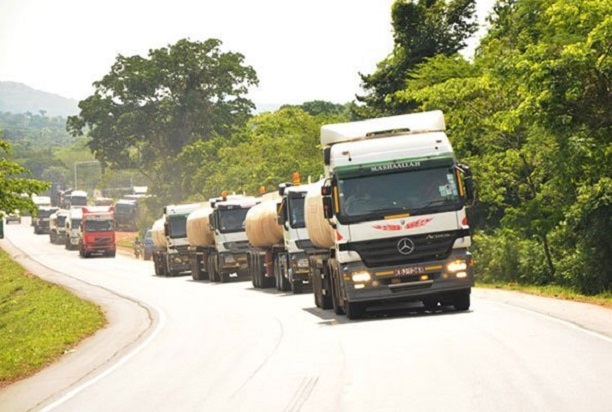Juba: A new report released by a Washington DC (US) based investigations Organization, The Sentry indicates that nearly one billion US dollars vanished in a massive bank credit scam that had devastating, deadly impacts on communities across South Sudan. These monies, according to the investigators, exchanged hands among the high top-ranking military and Government officials of South Sudan who are highly connected within the echelons of the power Centre.
The Sentry, based at 1629 K Street, NW, Suite 300, Washington, DC 20006, is an investigative and policy organization that seeks to disable multinational predatory networks that benefit from violent conflict, repression, and kleptocracy.
The three-year investigation report released in 2022 entitled “Cash Grab: How a Billion-Dollar Credit Scam Robbed South Sudan of Fuel, Food, and Medicine” details how massive credit lines provided by banks in Qatar and Kenya were turned into an opportunity to steal from the downtrodden, poverty stricken, hungrier S.Sudanese, by high-end corrupt leaders and their cronies, with the government of South Sudan, left on the hook to pay back the loaned money, back to Qatar and Kenya Governments, when their time is for repayment is due!
Click the link below to read the full report about Kabira’s money heist in DRC; https://thesentry.org/reports/covert-capital/
Our source in Juba reveals that the funds officially meant to deliver fuel, food, medicine, and improvement of sickening medical facilities among others across South Sudan between 2012-2015, disappeared into the pockets of a few greedy government officials. Key among the notable ones, according to our sources, is the power-hungry Director General of South Sudan National Security Service (NSS) General Akol Koor Kuc.
Our sources likened Gen.Akol’s scenario with that of late H.E Mubuttu Sseseseko, former president of Zaire (DRC), who reportedly plundered his own country, hid the loot in the Western and European banks including Diamond and hard cash, but when he died, all his country’s wealth that he had stolen from his own People was frozen and later taken by the same countries which had guaranteed his loot.
”Akoor siphoned part of the money and he’s hiding it in the neighboring Countries like Kenya, Uganda, and Ethiopia in sort of high-end Mansions and other investments. In Kampala and Nairobi alone he has several apartments but of course in other people’s names, but we know.,” added our source.
The source claimed that Akol and his clique connived with the would-be suppliers of the above goods and services and sent invoices, clearance, and other supporting documents to Qatar and Kenya Governments, clearing the ‘suppliers’ for payments pretending to have delivered the goods, whereas not. The money would then be shared between the would-be suppliers and the wigs in the security apparatus and other line agencies responsible for oversight roles.
”Government bigwigs would confirm to Qatar that indeed the goods and services were received and that the target audience (the poor Sudanese) got food, fuel to run hospitals and other public facilities and medicines which was totally false,” adds the source.
Meanwhile, the report states that after failing to account for these stolen funds by the mafias in S S, Gov’t entered into arbitration proceedings initiated by Qatar National Bank (QNB) at the International Center for Settlement of Investment Disputes. By July 2020, the matter remained unresolved, and the government reached a debt-restructuring agreement with the bank.
The Sentry revealed that at the peak of the letters of credit program, more than two million people went without food, hospitals and clinics had to treat patients without medicine, and fuel shortages resulted in black market price gouging. “Eventually of course some poor people died, because there was no food, no medicine, but then they had to pretend like they were treating them whereas not,” our source in Juba added.
Recommendations
The Sentry urges the government of South Sudan to focus on developing a public corporate register and identify firms that received LCs and continue to operate in South Sudan, saying firms and individuals who failed to deliver goods should be subject to investigation.
It also urged the government to implement chapter four of the revitalized peace agreement to address the crippling cycle of debt, economic mismanagement, and corruption undermining economic prosperity and fueling conflict.
The advocacy group called on the US government to investigate illicit money flows.
-The Spy Uganda





